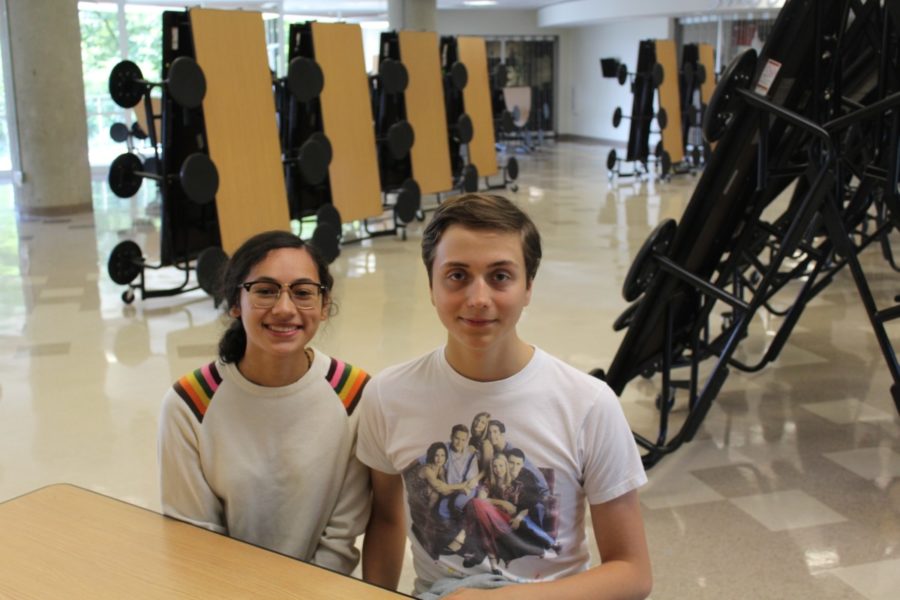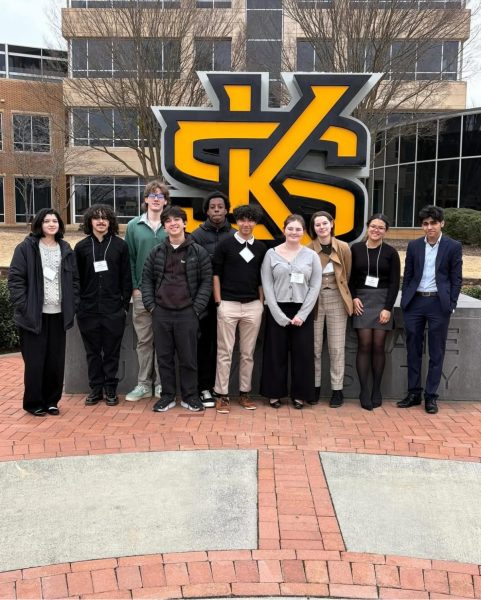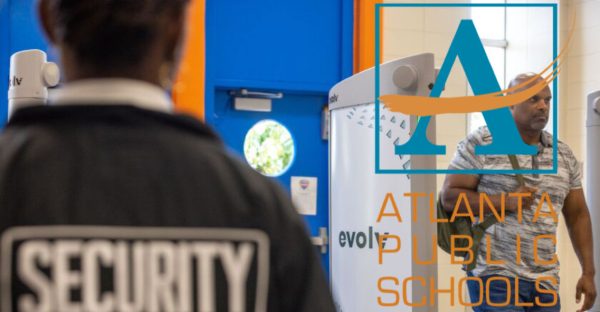High Steaks Movement Aims to Remove Beef From the APS Lunchline
Banning Beef: Seniors Emily D’achiardi and Cole Bickerstaff fight to get meat off the APS cafeteria menu
As climate change becomes a more pressing and immediate threat, students around the world are searching for ways they can flip the script and reduce their carbon footprint. One group of North Atlanta students is making its voices heard and turning its calls into action. The High Steaks Movement, established this school year, is working with Atlanta Public Schools officials to permanently remove beef from the lunch menu and replace it with more sustainable, plant-based options, as well as educate the student body on the climate change issue.
This red meat revolution is the product of extensive research done by senior Cole Bickerstaff. An avid environmental activist and dedicated vegan, Bickerstaff combined his interests to create the High Steaks Movement. “When I was given this opportunity to lead this campaign, I immediately took it so that I could not only educate people on the issue but also bring about change in my community,” he said.
This campaign formally started over the summer, when members met with APS superintendent Meria Carstarphen, who offered her support. There is a continued focus on altering the lunchtime menu, but in the meantime High Steaks is in the process of raising awareness for their campaign and expanding their reach. Currently, the group is working on a video that will be broadcasted across APS schools, planning a meeting with representatives from these schools, and even organizing to participate in a global climate strike in September.
Skeptics of High Steaks may call into question the impact and motives of such a change. However, the leaders of the movement would be quick to explain the science behind it. Currently, animal agriculture is the chief contributor to climate change, and beef is the leader of the pack. Beef is only included in three dishes on the APS lunchline menu, so replacing them with plant-based protein — with items like tofu and chickpeas — would be a relatively easy fix. While this change could have potential environmental benefits, supporters of this proposal also emphasize the added nutritional value of these options. Group members say their overarching desire is to promote a healthier perspective on nutrition and environmental impact. Senior Emily D’achiardi sees the change as mutually beneficial for both the world and its inhabitants. “A little change can and will help our cause to promote awareness of the global climate crisis,” she said. “I’d like to emphasize that this campaign would sustain and advance the well being of our body and the planet.”
Above all, advocates for this campaign hope to educate their peers on the environmental crisis at hand. For lots of students, climate change is an abstract concept that has been thrown around in the news for years. In recent months however, widespread concern for the safety of the planet has grown, and these leaders want to make this climate phenomenon a more relevant and realistic concern. By highlighting the importance of such an issue, the High Steaks Movement aims to teach students ways to try and prevent climate change. Senior Natalie McNamara appreciates the education side of the issue. “I firmly believe in the impact that an individual can have in limiting environmental degradation,” she said.
McNamara said that removing beef from menu will help them make more conscientious decisions about the planet’s well-being.
The members of High Steaks have made it clear that it’s time to ban the beef. High Steaks members are committed to making a positive change through these new plant based options, and they say a move toward a more sustainable food source will be more flavorful for both humans and the planet they inhabit.









